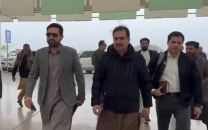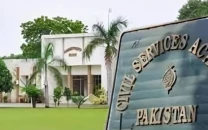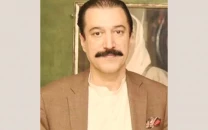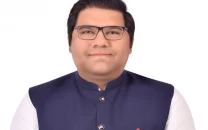Who is responsible for Karachi’s violence?

What the interior minister has said echoes to a great extent what the MQM has been saying — that the city is increasingly becoming Talibanised and something needs to be done about it. As far as this particular claim is concerned, it is most likely true — in fact it would be fair to say that large swathes of the country have become even more conservative and reactionary in recent years — but that doesn’t necessarily mean that the violence the city saw last week was because of these elements. The fact is that most people believe — and with some justification — that the unrest in Karachi is linked to the complicated politics of the city, the quest for control over it by mafias, the nexus these various vested interests have with political parties, and ethnic tensions that have crept up more and more often in recent years. Political parties with influence over the affairs of the metropolis need to be held responsible for much of what happens.
In this regard, a recent statement by the city police chief may be instructive — he said that much of the violence is caused because of criminal elements found practically in all political parties which need to cleanse their own ranks. We will go one step further and say that the city is vulnerable to a matrix of vested interests, mafia and criminal gangs and all these groups have access or at least some influence in the corridors of power. That is the only reason no action was taken in response to the events of May 12, 2007 despite the fact that the shootouts were shown live on television. And that is why there has been only talk and nothing else on the latest round of killings.
It is all well and good for the interior minister to descend on the city and make premature — and perhaps ill-conceived — claims as to the causes of the recent violence but the question is that what were the police and the law-enforcement agencies, and the Sindh government, doing when over two dozen people were killed in drive-by shootings? What became of the much-trumpeted ban on pillion riding, given that most deaths were caused by shooters on motorcycles? Both the MQM and the ANP, who have yet again traded serious allegations following the violence, need to understand that they have much to lose when the city is affected in this manner and that it is in everyone’s interest, particularly their own, for such incidents to not recur.
Published in the Express Tribune, May 25th, 2010.



















COMMENTS
Comments are moderated and generally will be posted if they are on-topic and not abusive.
For more information, please see our Comments FAQ